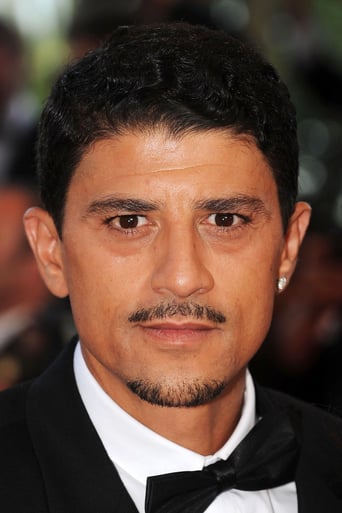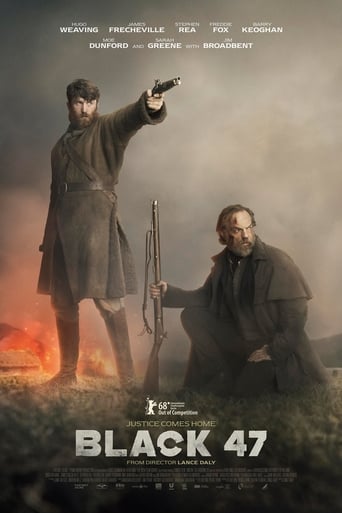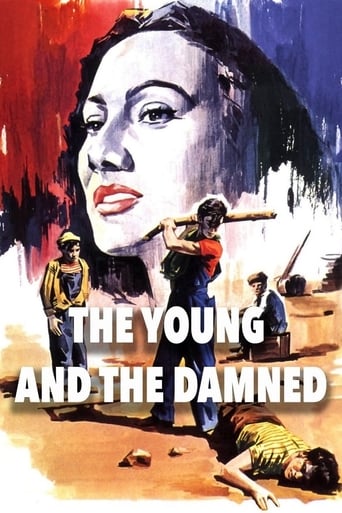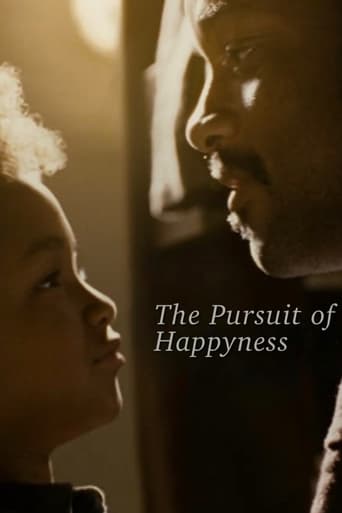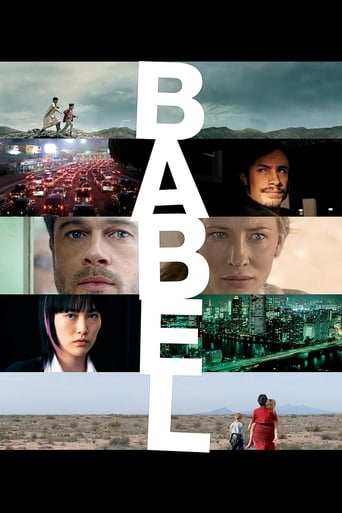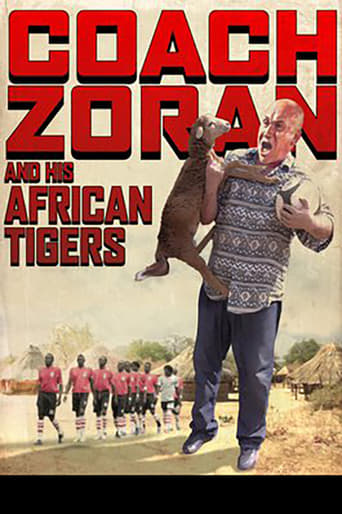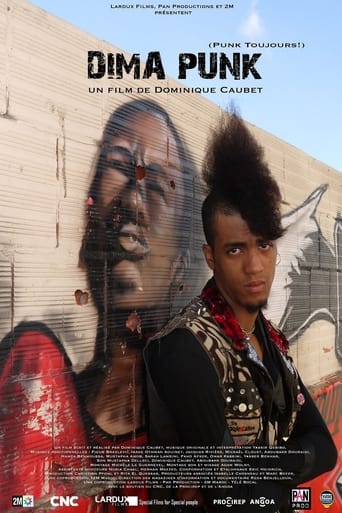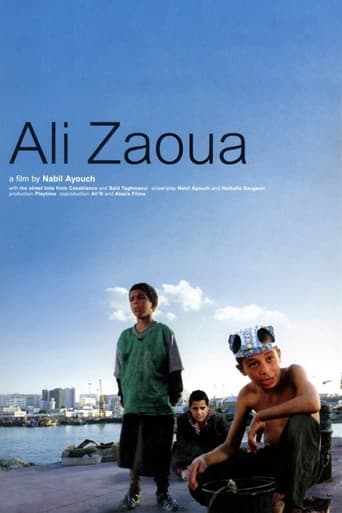
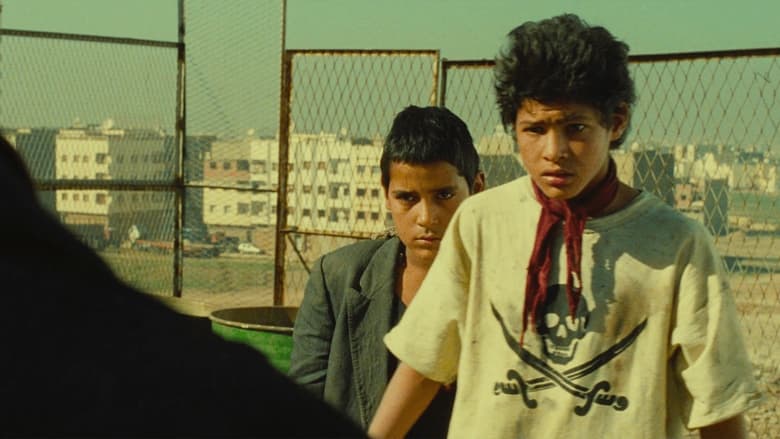
Ali Zaoua: Prince of the Streets (2000)
Ali, Kwita, Omar and Boubker are street kids. The daily dose of glue sniffing represents their only escape from reality. Since they left Dib and his gang, they have been living on the portside of Casablanca. They live in constant fear of Dib's revenge. Ali wants to become a sailor - when he was living with his mother, a prostitute, he used to listen to a fairy tale about the sailor who discovered the miracle island with two suns. Instead of finding his island in the dream, Ali and his friends are confronted with Dib's gang. Matters are getting serious.
Watch Trailer
Cast


Similar titles
Reviews
The lyricism of the streets, this is a sad film about a Morrocan boy, his backstory, his death and his friends who elevate his life to meaningful.The comparisons to "Lord of the Flies" are natural.The kids are cruel, they follow a leader quickly, they don't understand some things an adult would immediately grasp, such as Ali's death.Some of my favorite scenes include Kwita's romantic swoon over an older girl whose pocket he has picked, the tough Mr. Winston, who defends his cardboard home and storefront and the revelation that Dib, a deaf boy and leader of the rabble of kids, did care, was saddened by Ali's death and had planned a proper burial on his own.Ali's relationship with his mother is told through a children's story, of two suns, an island, and a sailor at sea. It's magical, weaving at different times through illustration and back to life.In a touching scene, we find that these are Ali's own childhood memories of a taped story, not his imagination. And we find that his mother has kept his room as he left it.Why didn't she search for him? It doesn't seem possible that Ali's backstory is as true as the rest of the boys believe.And we are left to believe what we want to. It's very likely we believe in the streets, the poverty, the cruelty, even if we believe that Ali may have had a choice and may have joined the streets from shame, not fear nor necessity.This is a filmmovement title. Find it and see it.
Such lies my boy tells, thinks the prostitute, as Ali's mother watches her son fabricate a story about how she wanted to sell his eyes to a local television crew, who's there in the trenches of the Casablancan streets to film a documentary on runaways. But an impostor is among the glue-sniffers, thieves, and hanger-ons. Ali is their spokesperson, ironically enough, since the boy has his own room he can return to any time he likes, with a bed and clean sheets, a radio that plays cassettes, and a grateful parent who will tuck him in at night. When the female reporter asks where her mother is, Ali(Abdelhak Zhayra) stares into the camera and declares the whore dead.Soon after the interview, Ali is struck down by an errant rock, this fatal throw, nothing but senseless payback for leaving a brethren of nihilistic street urchins(their rally cry, "Life is a pile of s***!"), led by an older mute boy who's like the Pied Piper of Sodomy. Left behind to contemplate the simple truth of Ali's sudden, untimely death, Omar(Mustapha Hansali), Boubker(Hitchama Moussone), and Kwita(Mournim Kbab) burden themselves with the responsibility of burying their crestfallen friend, while trying to stay above ground themselves on the streets of Morrocco.Told in the film language of Italian neorealism, "Ali Zaoua" contains a number of fantasy sequences, in which Ali's dream to be a sailor is kept alive by Kwita, who adopts the seafaring journey to an island in the sky as his own. "Ali Zaoura" affixes brief animated interludes onto the urban landscape(i.e. a billboard with a woman's face) as a projection of Kwita's dream to sail away with a pretty schoolgirl he worships from afar. In one scene, he plays both sides of a conversation while she stands next to flowers reconstituted as a line drawing. By combining realism with fantasy, "Ali Zaoua" tell its gritty story of street life in amalgam. Magic neorealism is the guiding principle and testament to the indomitable spirit of a boy who staves off the hard facts about the bleak prospects that life has in store for him, by doggedly persisting that his dreams can be made corporeal. In a crucial scene that underscores the filmic poetics at work here, the boys encounter an improbable painting that depicts Ali's nautical voyage to an island, like hieroglyphics from the afterlife, inside a "cave" that had previously housed the boy's lifeless body, while they wait out the cops' raid of their makeshift shelter on the pier above them.Kwita wants all of Morocco to remember his fallen friend, but Ali is far from being a heroic figure if you remove him from the context of the film's patriarchial ideology. Earlier in the film, when the boys are discovered spying on Ali's mother while she entertains her john, the prostitute expresses her dismay about her son's words on TV. Even though Ali was well-taken care of, he couldn't handle the shame of walking around his neighborhood with a whore. In keeping with Muslim tradition, it is verboten for women to initiate sex, even though the brand of Islam that's practiced in Morocco is considerably less strict than in other parts of the world. In another scene, Omar finally works up the courage to tell Ali Zaoua's mother(Amal Ayouch) that her son died, and returns her son's compass, a navigating gadget that is, metaphorically speaking, a moral compass. Now that she owns the device that served Ali so well, its arrow will point her in the right direction, too. The invitation to Ali's funeral that's extended to the prostitute is like a punishment for her sinful transgressions. It's her fault that Ali ran away. It's her fault that he's dead.Although "Ali Zaoub" seems sanctimoniously calibrated against the prerogative of women to survive, there's no denying the film's ability to engage its audience in the lives of these lonely children.
In the streets of Casablanca, the homeless boys Kwita, Omar and Boubker, leaded by Ali Zaoua, the son of a prostitute, leave the gang of Dib. The dream of Ali is to become a sailor and navigate with his mother to an isolated island with two suns. However, the four friends are attacked by Dib's gang and Ali dies, hit by a stone on the head. Kwita, Omar and Boubker hide the body in a hole, while trying to get money for a special funeral for the `prince' Ali. This movie is one the most sensitive and moving stories I have ever seen, comparable to the 1950 Luis Buñuel's masterpiece `Los Olvidados' and 1981 Hector Babenco's `Pixote: A Lei do Mais Fraco'. Indeed, it is a low budget movie, supported by outstanding director and infantile cast and a wonderful and never corny story. It is impossible not having the emotions affected or even cry with such a beautiful conclusion of a marvelous drama. My vote is ten.Title (Brazil): `As Ruas de Casablanca' (`The Streets of Casablanca')
I recently saw this film at the Santa Barbara international film festival. I glanced over the brief summary, and the fact that it came from Morocco intrigued me. However, it started an hour after a movie I really wanted to see started. The movie I went to wasn't that great and I ended up sneaking out of that one and into Ali Zaoua. I'm now glad I did so because what I saw was one of the most brutally realistic and terrifying, yet beautiful and poetic, inspiring and redemptive movies I've ever seen.This movie is not for the faint of heart. Since it takes place in the poverty of a third world country, in places where the homeless in America seem spoiled in comparison, this movie portrays the harsh realities these kids endure everyday to survive, whether from the world around them or each other, no matter what the cost. The actors seem casted right off the streets, bearing scars and other physical traces of the nightmares they live through. The fact that the characters are only small children forced to live lives that even an adult would have a difficult time with makes this movie even more powerful.At times this movie seemed like a version of Lord of the Flies, but I can't go into that any more without potentially spoiling the movie (or Lord of the Flies for those who haven't seen the movie or read the book). All I will say, however, is that the movie doesn't center around what seems to be aspects from Lord of the Flies and has much more good points about it than bad ones, that the movie carries much further than these aspects.I can't say enough about this movie. I've only seen it one time and now I can't seem to find it on video or DVD. I can only hope that it comes out on DVD and in widescreen format.


